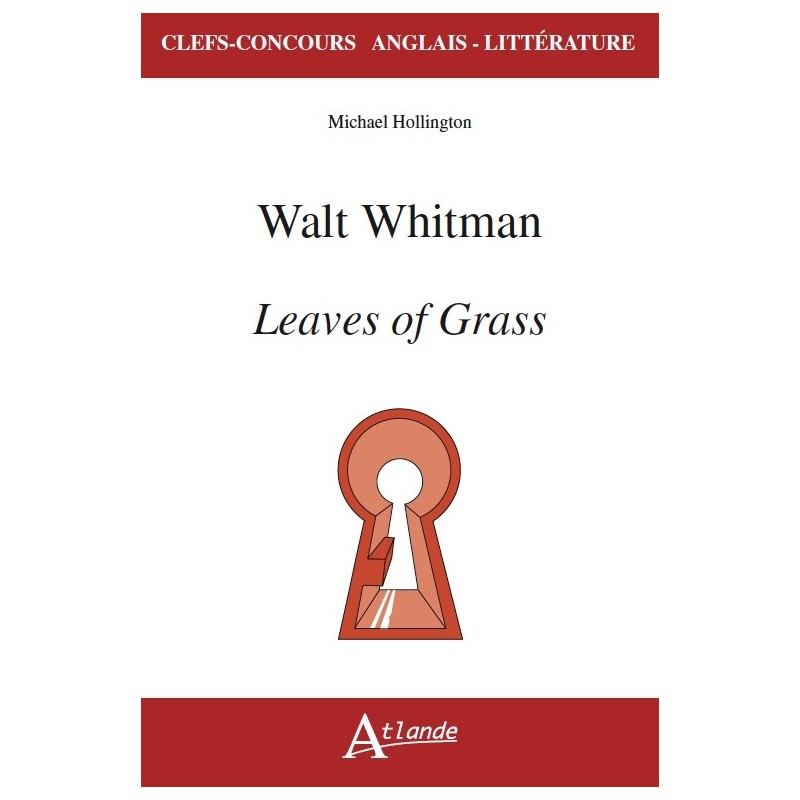



Michael Hollington
au sujet de l'oeuvre
Walt Whitman's - Leaves of Grass
 Livraison gratuite
Livraison gratuite
Et en lettre suivie pour la France métropolitaine !
S'adressant à tous les candidats aux concours, en particulier à l'agrégation et au Capes, Clefs Concours offre une synthèse par sujet. Conçu comme un repère par rapport aux monographies et aux cours et comme un outil de révision, chaque ouvrage est articulé autour de fiches thématiques permettant de faire le point sur les acquis de la recherche.
Synthèse des travaux les plus récents, Clefs Concours permet de s'orienter dans la bibliographie et de mettre en perspective l'évolution des savoirs.
Clefs concours Anglais - Littérature
Tous les titres sont organisés autour d’une structure commune :
- des repères : un rappel du contexte historique et littéraire ;
- les grandes thématiques, indispensables à la compréhension des enjeux de la question ;
- des ouvertures pour des pistes de réflexion ;
- des outils méthodologiques, notamment bibliographiques ;
- un système de circulation pratique entre les fiches et les références.
Fiche technique
Introduction
Part one : sketching a context
From the top of the omnibus
Whitman in a rural setting
Whitman in an urban setting
Sex and sexuality
Politics
Religion and the Bible
Whitman and music
Whitman and language
Becoming a poet
Whitman and tradition
Democratic epic, the epic boast, oratory
Romanticism, nature, organicism
Part two : reading the poems
Leaves of Grass : a head-note
Song of Myself
Part three : searching for a vocation
Calamus
Out of the Cradle Endlessly Rocking
When Lilacs Last in the Dooryard Bloom'd
Drum-Taps
Appendix : The Life and adventures of Jack Engle
Bibliography
Michael Hollington est Honorary Research Fellow à l'université du Kent à Cantorbéry.
"Whitman had a particular view of the evolution of language. He saw it as developing from origins in the East and Eastern civilisation and spreading further and further westward, so that the English language, in particular in its incarnation in America, could be seen as the most highly evolved language. As he saw it, it was the language that had absorbed other languages to a greater extent than any other, and part of his own task as a poet was to continue that work by incorporating as many new words and expressions as possible from foreign languages – in his own case, from French and Spanish in particular."